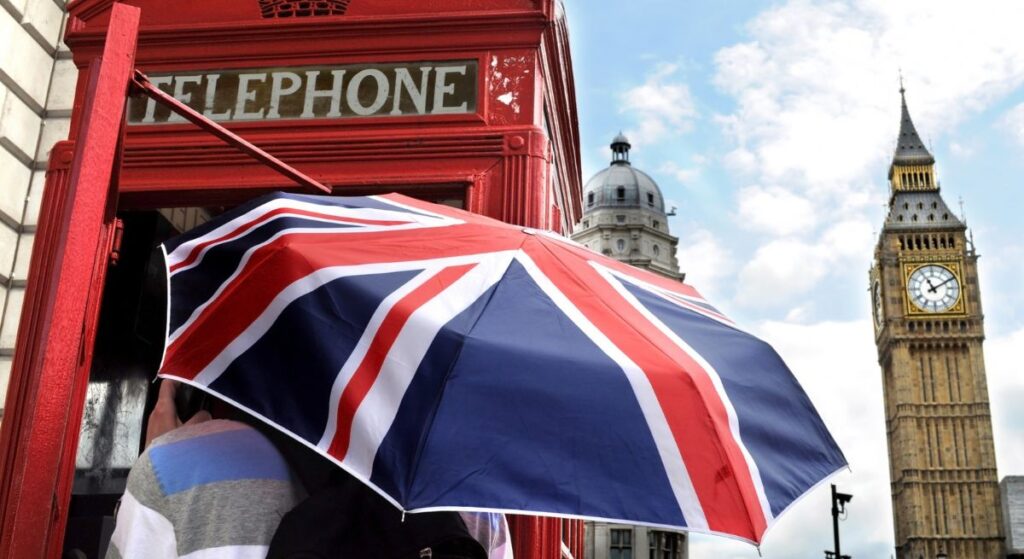From the early days of telegraphy to the era of high-speed 5G networks, the UK has been at the forefront of advances in telecommunications. This article explores the key milestones and players that have shaped the UK’s telecommunications landscape.
In 1846, the Electric Telegraph Company laid the groundwork for telecommunications in Britain by launching a public telegraph service. The country’s extensive rail network provided an ideal backbone for telegraph lines, enabling rapid communication between major cities such as London, Manchester, Liverpool and Edinburgh. The late 19th century brought the birth of telephony in Britain with the first public telephone exchange in London in 1878. The National Telephone Company, founded in 1881, played a key role in developing telephone services throughout the country.
The British and Irish Magnetic Telegraph Company and the United Kingdom Telegraph Company laid the foundation for a national communications network. The Telegraph Act of 1869 granted the General Post Office (GPO) a monopoly on communications, preparing the ground for a centralized telecommunications system. The advent of the telephone in 1876 added a new dimension to GPO services. The GPO began providing telephone services, and by 1882 private companies were licensed to operate their own telephone services. The landscape succumbed to competition from the National Telephone Company (NTC) until 1880, when a ruling ordered the service monopolized, leading to GPO’s absorption of NTC in 1912.
In 1912, the telecommunications sector witnessed a significant change with the establishment of the General Post Office (GPO) as a state monopoly. This move was aimed at providing universal access to telecommunications services, marking a key moment in the history of telecommunications in the UK.
During both World Wars, telecommunications systems were essential for military coordination and civil defense, underscoring the strategic importance of the sector. After World War II, the GPO emerged as the sole provider of telecommunications services, marking the era of the British Telecommunications Monopoly, which lasted until the 1980s.
In 1969, a significant transformation took place when the GPO became the Post Office, a nationalized industry independent of the government. Postal Telecommunications was established as a branch of the Post Office, retaining exclusive rights to operate the UK’s national telecommunications network. The 1970s. brought major expansion, modernizing exchanges and introducing services such as STD and international dialing.
The foundation for digital communications was laid in these developments. The System X digital switching platform emerged, marking a leap forward in the evolution of telecommunications. Data communication via packet switching was researched and implemented, leading to innovations such as EPSS and the International Packet Switching Service.
The winds of change blew in 1979
, when the decision was made to completely separate telecommunications from the Post Office. The British Telecom brand was introduced in 1980, and by 1981 it had become the official name of Postal Telecommunications. The British Telecommunications Act of 1981 transformed it into a state-owned corporation independent of the Post Office.
The telecom monopoly that BT held was broken in 1982 with the licensing of Mercury Communications. The scene was set for a major transformation.
The 1980s. ushered in a major transformation with the privatization of British Telecom (BT) in 1984. BT, derived from the Electric Telegraph Company, became a public company, ending the state monopoly and bringing competition to the market.
The turning point came in 1984, when British Telecommunications plc was incorporated as a public limited company, marking BT’s privatization. Shares were offered to the public, and by 1993 the government had completely divested its stake. The new millennium brought BT out onto the world stage, with its BT Enterprise division providing telecommunications services to corporate and government customers around the world. Privatization also had an impact on broadcasting, with companies such as Babcock International and Arqiva acquiring radio transmitters in the 1990s.
Going through numerous changes and adapting to the dynamic telecommunications landscape, BT continued to prosper. The company changed its trade name to “BT” in 1991 and experienced changes in management. The 1990s. witnessed BT’s entry into the Irish telecommunications market through ventures such as Ocean, paving the way for international influence. British Rail Telecommunications, established in 1992, further illustrated the intertwining of telecommunications with other sectors, particularly railroads.
From the era of analog networks such as Cellnet (later O2) and Vodafone, the transition to GSM-900 and GSM-1800 networks marked the second generation. The advent of 3G brought significant improvements, enabling services such as video calling and live TV. The Digital Age and the Internet marked a key period in the history of telecommunications in the UK, significantly transforming both the economy and society. In the 1990s. There was a global digital revolution that also affected the UK. This era was characterized primarily by the growing importance of computers, the digitization of data and the development of the Internet.
In 1985, Vodafone launched the first mobile network in the UK, followed by Cellnet (later O2). The 1990s. brought the introduction of 2G technology, with Orange (now part of EE) at the forefront.
The introduction of high-speed Internet connections has enabled the rapid growth of e-commerce. Stores such as Amazon UK, which was launched in 1998, quickly gained popularity, offering customers the convenience of shopping from home.
The turn of the 21st century marked a digital revolution. The UK actively adopted Internet-based services, and the growth of broadband changed the way people communicate and access information. The early 2000s saw significant progress with the introduction of broadband services. This transition from dial-up facilitated the development of e-commerce, digital services and online platforms such as Amazon UK (launched in 1998) and BBC iPlayer (launched in 2007). Digital services and streaming media have revolutionized the way people watch TV and movies, moving from traditional TV to on-demand services.
Major players such as EE, O2, Vodafone and 3 have launched their 4G networks, significantly increasing mobile communications capabilities. In 2003, Hutchison 3G (3) launched the first 3G services in the UK. EE introduced 4G technology in 2012, marking a significant leap in mobile Internet capabilities.
Broadband Internet has also enabled the growth of remote work and online education. Universities and schools have begun to offer online courses, and companies have begun to implement systems that allow people to work from home.
Faster internet has led to the development of social media and communication applications. Platforms such as Facebook, which became available to users in the UK in 2005, have revolutionized the way people connect and share information.
In May 2019, EE launched the first commercial 5G network in the UK, followed shortly by Vodafone and O2. This new technology promises to revolutionize the Internet of Things (IoT), wireless communications and digital services.
Digital Infrastructure Development: The introduction of broadband services also required the development of digital infrastructure, which included the expansion of fiber-optic networks and the upgrade of existing telecommunications networks.
The introduction and expansion of broadband in the UK was thus not only a technological step, but also a catalyst for social, economic and cultural change. It has enabled the transition to a more connected, digital society, with greater access to information, services and entertainment. 5G, with its greater capacity and speed, is enabling the growth of IoT. BT, through its EE company, is working on 5G deployment to support smart cities and industries.
5G technology offers an alternative to traditional wired connections, which is especially important in hard-to-reach areas. With 5G, companies such as Sky and BT are developing 4K streaming services, as well as augmented reality and online gaming capabilities.
In the future, mobile telecommunications in the UK will continue to evolve, with possible breakthroughs in 6G technology and further developments in IoT changing the way we work, learn and communicate. Investment by telecommunications companies and collaboration with the technology sector will be key in shaping this future. Transition to Digital Voice / Digital Voice.
As the UK’s telephone network is set to shut down in 2025, the transition to “Digital Voice” is underway. This conversion to voice over IP requires a connection to a broadband router, reflecting the ongoing digital transition.
Source:



